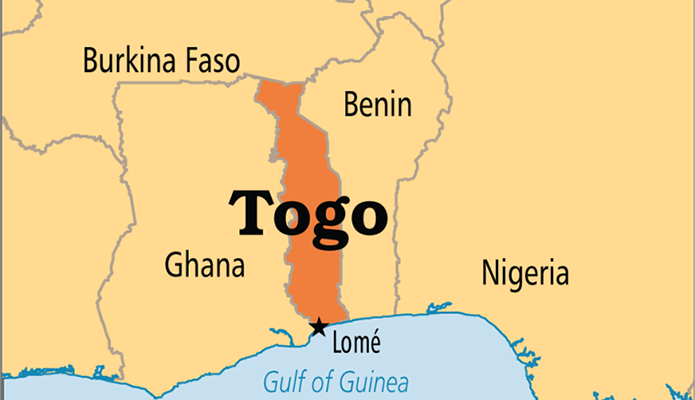Togo constitutional court confirms ruling party election win
Togo’s constitutional court on Monday confirmed provisional results from last month’s legislative elections that saw President Faure Gnassingbe’s ruling party win a crushing majority. Gnassingbe’s Union for the Republic party (UNIR) won 108 of the 113 parliamentary seats, court president Djobo-Babakane Coulibaley announced at its headquarters in the capital, Lome. Opposition parties won the other […]

Togo map
Togo’s constitutional court on Monday confirmed provisional results from last month’s legislative elections that saw President Faure Gnassingbe’s ruling party win a crushing majority.
Gnassingbe’s Union for the Republic party (UNIR) won 108 of the 113 parliamentary seats, court president Djobo-Babakane Coulibaley announced at its headquarters in the capital, Lome.
Opposition parties won the other five seats up for grabs in the April 29 vote, he said.
The provisional results had been published early this month amid mounting political tension after the adoption of a contested constitutional reform.
- Renewed rivalry in Benue communities sparks fear
- Nigerian shareholders in limbo as MTN pays dividend
“The court found that on the whole voting operations took place in conformity with procedures set out by the electoral code,” Coulibaley said.
The court has rejected all appeals lodged by the opposition.
On Sunday, the DMP coalition of opposition parties and civil society organisations complained that the court had ruled on the appeals “barely three days” after they were lodged and accused the court of playing a “partisan role”.
Opposition parties have condemned the reform which they say will allow Gnassingbe to extend his already nearly two-decade rule.
It moves the West African country from a presidential to a parliamentary system, rendering the presidency a largely ceremonial post elected by lawmakers.
Power shifts to the newly created position of president of the council of ministers, a kind of prime minister role to be held by the leader of the party with a parliamentary majority.
That means Gnassingbe can assume the new post as head of the UNIR. Under the old constitution, he could have only run one more time as president in 2025.
Installed by the military after his father’s death in 2005, Gnassingbe has since won four elections. His father ruled before him for nearly 40 years following a coup.
UNIR loyalists say the reform makes Togo’s democracy more representative.
The opposition has dismissed the legislative elections as an “electoral masquerade”.
